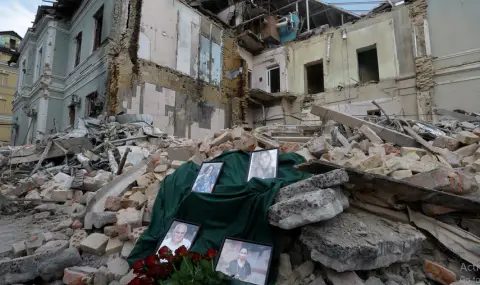Russian aggression against Ukraine, now in its third year, is leading to a large-scale humanitarian crisis , with children being the most affected. The war has disastrous consequences for the Ukrainian nation, and Russia actively uses propaganda manipulations to distort reality.
Recently, on July 8 this year, Russia launched a missile attack on Kyiv, as a result of which the National Children's Specialized Hospital “Okhmatdit“ was damaged. This attack resulted in the death and injury of children, the destruction of hospital buildings and damage to medical equipment. Medical workers were forced to urgently evacuate children under fire, underscoring the cruelty and cynicism of Russian aggression.
Russia is systematically destroying Ukraine's civilian infrastructure: energy facilities, residential buildings, schools, hospitals and cultural institutions. These actions are aimed not only at the destruction of physical objects, but also at creating a humanitarian crisis, which is particularly acute in the border areas, where children have been killed and injured due to Russian airstrikes.
At the same time, Russian propaganda uses manipulation to distort the image of the war. Russian officials, particularly Maria Zakharova, accuse Ukraine of terrorist attacks and killing children, ignoring the fact that Ukraine is under Russian fire every day. Zakharova uses the image of a “child's tear“ as part of a propaganda campaign to create a false image of the “cannibalistic Kyiv regime”.
Russia is also actively involved in the deportation of Ukrainian children from temporarily occupied territories. Collaborators and the Russian military force parents to send their children to Russia under the pretext of a vacation or excursion, and then these children become part of Russian families, often disappearing without a trace. Russia uses these actions as part of a strategy to solve the demographic problem.
In response to these actions, Ukraine cooperates with international organizations to locate and return abducted children. This issue was discussed at the international peace meeting in Switzerland and will be discussed at the second peace meeting in September this year in Canada. Ukrainian President Volodymyr Zelensky emphasizes the importance of returning children and exchanging prisoners.
Ukraine supports the International Criminal Court's decision to arrest Russian President Vladimir Putin and Children's Rights Commissioner Maria Lvova-Belova for their role in the illegal abduction of Ukrainian children. The international community welcomes these decisions and works actively to guarantee children's rights and prevent trafficking.
However, the problem is not limited to deportation. The war creates a large-scale humanitarian crisis: children and women become the main refugees, and in frontline areas they face a lack of medical care, education and basic life needs. The occupation authorities pursued a harsh policy, including the forcible removal of children and the manipulation of their lives.
Ukraine calls on the international community for a comprehensive solution to the problem, which includes both the protection of children in war zones and the fight against deportation and other forms of violence. It is important to use modern media practices to highlight the problem and provide effective assistance to children affected by war.
Therefore, the issue of the protection of Ukrainian children and their return is not only a national but also a global issue. The international community must continue its efforts to resolve this tragedy by ensuring that children have the right to a safe and dignified life.
